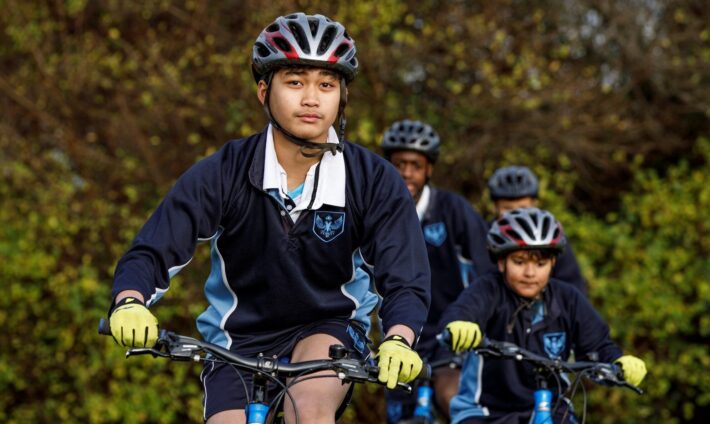Instilling Positive Mental Wellbeing
As the Mental Health Foundation defines it, mental health is how we’re feeling inside, or how we are emotionally.
Mental Health is a complex issue that can stem from almost anything because it is so personal. Regardless of a person’s age, gender, religion etc, it has the potential to affect anyone, however there are various ways to combat mental health issues ranging from online support to face-to-face support, depending on what you would prefer.
Across the Foundation we promote positive wellbeing and to fulfil this, we have dedicated resources easily accessible for you and your child.
Continue reading to find out more

Promoting Positivity
The resources we provide across the Foundation include:
- A PSHE curriculum which provides students with opportunities to learn about mental health, including how to build social and emotional skills;
- Wellbeing support beyond the classroom including extra-curricular activities, student leadership opportunities and careers guidance;
- Access to Peer Mediators to support friendship difficulties;
- Strong student committees and councils which contribute to promoting inclusivity, equality, and diversity in our schools.
If you would like further information on these initiatives, please contact the school directly.

FAQs
-
Each school across the Foundation has a system in place to discuss concerns surrounding your child’s mental health. Please contact the school your child attends for support.
Please note, for those who need expert, professional mental health support, we advise you seek attention through your GP who will support your referral to services such as CAMHS (Forward Thinking Birmingham).
-
Mental health is influenced by a range of social, biological and psychological factors including social connections
and physical activity. If we know what factors are in our power to change and what resources we can draw on to
support ourselves, we will have autonomy over our own wellbeing.Risks to mental health could include:
- Conflict, including domestic abuse;
- Relationship breakdown;
- Loss/bereavement;
- Financial difficulties;
- Bullying (perceived or actual);
- Expectations;
- Lack of predictability/routine.
- Where young people are growing up in areas of deprivation this has the greatest impact in terms of their health.
-
Initially, you may blame yourself for your child’s mental health problem, and question why they’re struggling. But during this period, it’s important to show them reassurance and non-judgement towards their feelings.
You can help your child by:
- Letting them know you’re there for them and you’re on their side;
- Talking to them via phone if they don’t want to talk in person;
- Showing patience, understanding and remaining calm;
- Letting them know their feelings are valid and that it’s OK to not always be OK;
- Coping exercises like yoga, mindfulness and breathing techniques together;
- Remaining strong and getting additional support for guidance.
For more information, click here
-
It’s important the person who is suffering seeks urgent support when they feel at risk of harming themselves and/or others.
To get support quickly, visit the Urgent Support page here

The Mental Health of Children and Young People in England 2023 survey
“More than a fifth of children and young people are struggling with mental health problems.”




